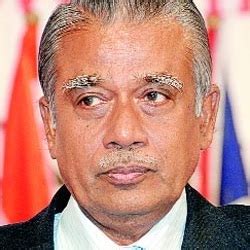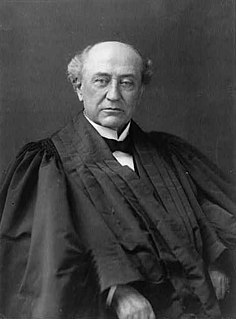A Quote by D. R. Karthikeyan
People in office have to become models of correct behaviour. What they say and how they act should be beyond criticism. And when they commit the slightest mistake, they should quit their office on moral grounds without waiting to be proved guilty. Moral values must take centre stage in all walks of life.
Related Quotes
We made a mistake. What we should have done when people crossed the line of faith and become Christians, we should have started telling people and teaching people that they have to take responsibility to become 'self feeders.' We should have gotten people, taught people, how to read their bible between service, how to do the spiritual practices much more aggressively on their own.
"Judge not, that ye be not judge"... is an abdication of moral responsibility: it is a moral blank check one gives to others in exchange for a moral blank check one expects for oneself. There is no escape from the fact that men have to make choices; so long as men have to make choices, there is no escape from moral values; so long as moral values are at stake, no moral neutrality is possible. To abstain from condemning a torturer, is to become an accesory to the torture and murder of his victims. The moral principle to adopt... is: "Judge, and be prepared to be judged."
The Electoral College is a project that calls on their judgment. If we don't like it, we can talk about how to eliminate it. I'm not quite convinced we should eliminate it completely. I think it's important to have a final check be somebody other than the Supreme Court. But given that it's there, we should take it seriously. And taking it seriously says they should exercise their judgment according to the moral values, the principles that are part of our constitutional tradition today. And those principles say equality.
I must say that in my own mind, I think what's important is for us, as a society, to radically reduce the consumption of meat. This is more important than some fraction of us become moral saints and become vegetarians so it would be much better if we would reduce meat consumption by three quarters of each of us as an individuals would only eat one-quarter as much meat as we do now then that half of the population should become vegetarian. We should see this as a collective challenge rather than an issue about individual, moral period.
In the spiritual domain, criticism is love turned sour. In a wholesome spiritual life there is no room for criticism. The critical faculty is an intellectual one, not a moral one. If criticism becomes a habit it will destroy the moral energy of the life and paralyse spiritual force. The only person who can criticise human beings is the Holy Spirit.
I take criticism so seriously as to believe that, even in the midst of a battle in which one is unmistakably on one side against another, there should be criticism, because there must be critical consciousness if there are to be issues, problems, values, even lives to be fought for... Criticism must think of itself as life-enhancing and constitutively opposed to every form of tyranny, domination, and abuse; its social goals are noncoercive knowledge produced in the interests of human freedom.
Every major power always seeks to justify its action on moral grounds. Such behaviour is almost as old as the hills. The west has been a particularly vigorous exponent of this credo; and there is no reason to believe that China, for example, will be any different. But behind the moral rhetoric invariably lies interest and ideology.
Go through the moral demands...one by one and you will find that man could not live up to them; the intention is not that he should become more moral, but that he should feel as sinful as possible. If man had failed to find this feeling pleasant - why should he have engendered such an idea and adhered to it for so long?... Man was by every means to be made sinful and thereby become excited, animated, enlivened in general. To excite, animate, enliven at any price.

































